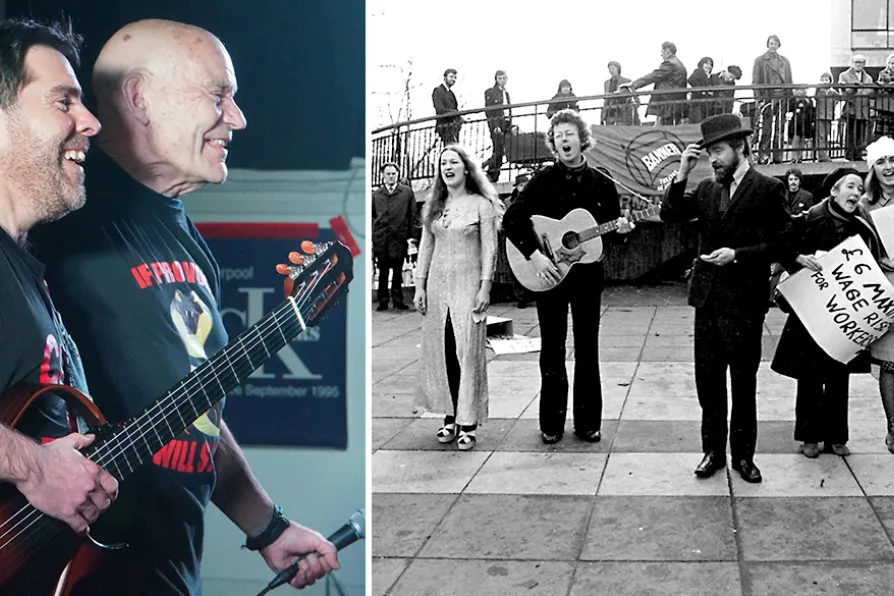SCOTT ALSWORTH suggests that video games have a lot to learn the rich tradition of Marxist theatre

 (L-R) Mike Bethel and Dave Rogers perform Saltley Gate To Party Gate, Shipley, October 2022; (R) Banner Theatre take to the streets in the 1970s
[Dean Whiskens / Stuart Brown]
(L-R) Mike Bethel and Dave Rogers perform Saltley Gate To Party Gate, Shipley, October 2022; (R) Banner Theatre take to the streets in the 1970s
[Dean Whiskens / Stuart Brown]
ON November 1, an event at Bridgwater Arts Centre will celebrate 40 years since the great Miners’ Strike in the British coalfields – and the 50th birthday of Birmingham’s political theatre company, Banner Theatre.
This longevity is an astonishing achievement for any theatre company, but for a political theatre group it’s pretty much superhuman.
Dave Rogers has been involved with Banner Theatre since 1974 and is now artistic director. How has Banner survived?

CWU leader DAVE WARD tells Ben Chacko a strategy to unite workers on class lines is needed – and sectoral collective bargaining must be at its heart

Incoming Usdaw general secretary JOANNE THOMAS talks to Ben Chacko about workers’ rights, Labour and how to arrest the decline of the high street

LYNNE WALSH previews the Bristol Radical History Conference this weekend











